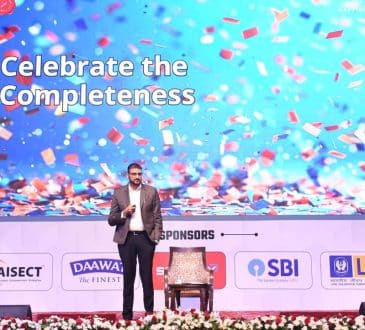Why Diversity Matters

We live in an extraordinary world of technological benefits because of unification theory. If you are unfamiliar with the concept, unification theory merges different scientific concepts into new, much more powerful, concepts. One of the easiest examples of this for me to understand is electromagnetism, the unification of electrical and magnetic theories.
The person arguably most responsible for the technology we enjoy today, Isaac Newton, unified physics and mathematics in a way that laid the groundwork for innumerable discoveries and advancements. Newton’s unification of these subjects resulted in theories of gravitation, motion, and optics. Newton’s unification also gave us calculus, upon which almost every significant scientific, engineering, economics, computer, or any other technological discovery is based.
Because of the impact his discoveries had on our world, it is easy to conclude that Newton was one of the top five most influential people in history. And Newton’s success can be largely attributed to unifying different ideas or perspectives. When differences are unified, they are powerful.
There are many examples of unification theory at work, even outside of science. I was reminded of this while reading about the work Bill Clinton is doing post-presidency. He is working with different groups around the world as part of a global initiative to tackle some of our most challenging problems. What he observed as part of this work is that much more progress is made toward the resolution of global challenges when groups with different perspectives work together.
In his book Citizen, Clinton writes, “What was the most interesting to us was that the commitments most likely to succeed were true partnerships, where people from different sectors brought distinctive talents and resources to a common problem. Taken as a whole, the partnership projects actually exceeded their goals.”
The above are only a couple of examples, and much more evidence exists that different perspectives help create value. So, if diversity – or seeing things differently – drives better results, business leaders should do the following:
- Build a team with different perspectives. If everyone on your team thinks alike, you have a big problem. When speaking to groups about this subject, I will bring a beach ball with me and show it to the crowd. I explain that if you are on the blue panel of the beach ball, your perspective will be blue, while the world will appear orange to anyone on the orange panel of the beach ball. Both perspectives are right, though most people can only appreciate one color at a time, their color. The best leaders have people on their team from every panel of the beach ball. They not only understand that others see things differently, but they value each other’s perspective.
- Promote a Culture of Transparency – Building a team with different perspectives does no good if you don’t have a safe environment within which people can share them. At our company, one core value is what we call being “Highly Assertive, Highly Cooperative.” This means we want people to speak up if they disagree with someone else’s perspective, but we also want them to be respectful and polite. If someone leaves a meeting unwilling to share their differing views, it is what we call being a “silent liar.” We want to hear various perspectives and do our best to create an environment that promotes folks feeling safe while being transparent.
- Get outside data – I am often asked to what I attribute the explosive growth our company, Correct Craft, has enjoyed over the last twenty years. I always respond that we have a great team who embraces a very intentional culture and uses an excellent strategic planning process. And that strategic planning process requires a lot of outside data. In fact, we rely almost exclusively on outside data for our various companies’ situation analysis because we understand that self-deception makes us bad judges of our own performance. Therefore, we want to measure ourselves not by our own opinions but by what others think.
- Be intentional about looking for the negative—Someone on your team must consider the devil’s advocate perspective when making big decisions. The book Six Thinking Hats by Edward de Bono has helped our team with this important task. De Bono’s book provides a great tool for helping teams easily consider different perspectives, including the negative, which he calls “black hat” thinking.
- Encourage learning – I have written a lot about the importance of being a learner over the years. In short, being a learner does not refer to how much information you take in but how you process the information you are consuming. Learners process information to expand their perspective, while knowers process information to validate what they already think. Be a learner.
When people think of diversity, they often first consider a person’s demographic profile, which is one part of it. However, the most important part of diversity is not how someone looks or where they came from; it is their paradigms or mindset. A leader wants people on their team who see things differently than they do and understands that diversity of perspective will make their team much better.
So many studies have validated the benefits of diversity that I am not sure why we even bother to keep researching it. Research from respected organizations like Harvard University, The Boston Consulting Group, McKinsey and Company, Deloitte, and many others have identified a “Diversity Dividend” that results when organizations embrace different perspectives. The verdict is in, and it is clear – different views drive better results.
In 2003, the United States military invaded Iraq on the presumption that the country had nuclear weapons, but soon after the invasion realized Iraq had none. Many wondered how the U.S. could make such a big mistake. One of the common theories for this error was that the people in charge were captured by groupthink, and there was no process for critical dissent. This mistake resulted in the military changing its decision-making process to include a broader range of perspectives, including someone specifically assigned the role of devil’s advocate. Seeing a broad range of perspectives is important for any leader.
Whether it is business, politics, the military, or just a decision in your personal life, getting different viewpoints matters, and makes you better.
Have you read?
The World’s Best Medical Schools.
The World’s Best Universities.
The World’s Best International High Schools.
The World’s Best Business Schools.
The World’s Best Fashion Schools.
The World’s Best Hospitality And Hotel Management Schools.
Bring the best of the CEOWORLD magazine's global journalism to audiences in the United States and around the world. - Add CEOWORLD magazine to your Google News feed.
Follow CEOWORLD magazine headlines on: Google News, LinkedIn, Twitter, and Facebook.
Copyright 2025 The CEOWORLD magazine. All rights reserved. This material (and any extract from it) must not be copied, redistributed or placed on any website, without CEOWORLD magazine' prior written consent. For media queries, please contact: info@ceoworld.biz








